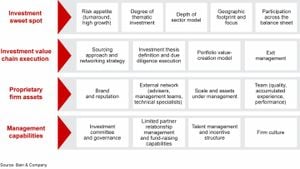Donald Trump’s anticipated return to the White House as president has stirred significant apprehension, especially considering 2024 is projected to be one of the hottest years on record. With global average temperatures already sitting 2.7 degrees Celsius above preindustrial levels, climate scientists and activists are worried about what this means for the future of climate action.
This year, when average global temperatures surpassed the 1.5 degrees Celsius increase threshold, has seen devastating consequences—ranging from catastrophic floods and severe droughts to intense heatwaves. Many are now bracing for the impact of Trump’s return as he’s been openly dismissive of climate change and has promised to unravel many of the environmental policies put forth by his predecessor, President Joe Biden.
During his previous term, Trump adopted what's often referred to as “drill, baby, drill” policies, which prioritized fossil fuel production over environmental protections. His re-election has raised alarm bells among environmentalists who fear he will dismantle Biden’s landmark climate legislation—the Inflation Reduction Act (IRA)—which allocated $369 billion for projects focusing on electric vehicles, solar and wind energy.
Researchers from the Climate Action Tracker (CAT) suggest Trump’s intentions could lead to a minor increase of approximately 0.04 degrees Celsius by century’s end; this might not seem like much, but could significantly deter global efforts to combat climate change, particularly if other countries decide to adjust their climate commitments downward as well.
“The damage it would do emission-wise to global climate action, if confined to the United States and over four to five years, is probably recoverable,” said Bill Hare of Climate Analytics, one of the researchers involved with CAT. This remark reflects the concerns of many who advocate for stringent climate regulations, especially as countries like China and India, both major greenhouse gas emitters, brace for the potential fallout from U.S. policy changes.
Adding to the uncertainty, the current international climate commitments have shown minimal changes over the last three years. According to CAT, if countries adhere to their present climate promises, projections indicate global warming could reach 2.6 degrees Celsius by 2100, which would be catastrophic.
Trump’s planned policies, including pulling out of the Paris Climate Agreement, signal a retreat from global climate diplomacy. This loss of American leadership could stymie joint efforts to curb emissions at a time when many believe collaboration is more necessary than ever.
Interestingly, since Trump first shook up U.S. politics, there has been significant momentum toward renewable energy, even within states historically resistant to such transitions. The push toward renewable energy now contributes around 30% to global electrical supply—a figure that's grown two-thirds over the last decade. Solar power usage has surged by 700%, and wind energy has doubled. This shift has been noted by influential figures, including Darren Woods, CEO of ExxonMobil, emphasizing the need for sustained efforts regardless of changes at the federal level.
"Anything happens to the short term would only complicate longer-term challenges tenfold," Woods stated during COP29, the imminent climate conference. His sentiment reflects the complexity of the existing energy markets and the global energy demand currently at record highs, which coexist with rising renewable energy adoption. The challenges presented by climate change are multifaceted and require concerted commitments across nations and sectors to address adequately.
While the idea of emissions targets, particularly for the United States, assumes prominence, questions remain about the future behavior of the largest polluters—China, India, and the U.S. together account for 53% of all global emissions. Alerts are ringing out, amplifying the fear of economic and environmental repercussions if these giants go slack during Trump’s new term.
The potential consequences of Trump's leadership extend deep within federal agencies, such as the Federal Emergency Management Agency (FEMA) and the National Oceanic and Atmospheric Administration (NOAA). Project 2025, outlined by the right-leaning Heritage Foundation, suggests significant overhauls to these agencies could arise, effectively transferring the burden of disaster recovery initiatives to state and local governments.
Craig Fugate, who previously headed FEMA, sounded the alarm on what such changes might mean for local budgets. He warned, “It almost becomes unthinkable states would ever be able to recover without long, costly recovery periods.” This concern emphasizes just how interdependent climate management and emergency preparedness are.
Prominent voices have noted how Trump's anticipated dismantling of climate initiatives could impact U.S. credibility among global partners. “The loss of U.S. leadership will have spillover effects,” noted Li Shuo, director of the China Climate Hub, indicating nations like China and the EU must step up to fill the vacuum left by America. “They will need to be partners critically,” he reiterated during recent climate discussions.
Meanwhile, the environmental disasters of 2024 cast shadows on Trump’s political maneuvering. Rising sea levels, habitat loss, and extreme weather phenomena—think floods, hurricanes, heatwaves—are becoming defining features of life for many individuals globally. The ripple effects of these realities reveal both ecological and human challenges, proving how climate action is no longer just about policies but is now fundamentally intertwined with survival and equity.
Critics note the extensive scrutiny Trump is likely to face as global climate policies evolve, as many citizens have increasingly recognized the impact of climate change on their communities. Trump’s ascent has ignited both fear and resistance, with environmental activists and even industry players calling for more ambitious climate action regardless of federal policies.
“Climate action is not just one brick; it acts like springs on a trampoline,” stated Mo Adow, director of Power Shift Africa, stressing how local and global actors can reshuffle and adjust to maintain forward momentum even amid political upheaval. “The future of climate actions will rest more on clean energy economics than just Washington politics,” he added, positioning the economic viability of clean energy as pivotal.
Elon Musk, appointed to lead the planned Department of Government Efficiency (DOGE) under Trump’s new term, has emerged as one of the climate change's prominent champions, advocating for renewable energy and emphasis on combating climate issues. The interplay between Trump's policies and Musk's clean energy innovation could potentially serve as unexpected counterweights, balancing the scales toward necessary environmental action.
Meanwhile, regional and municipal leaders appear to resist potential federal rollbacks. Many GOP lawmakers have discovered firsthand the economic benefits woven through clean energy projects, prompting warnings against tampering with populist-backed initiatives like the IRA. Washington Governor Jay Inslee voiced his concerns: “Once people have benefits, you can’t take it away.” This sentiment highlights the growing appreciation for clean energy investments, particularly among certain Republican districts.
The outlook remains uncertain as Trump prepares for what may become one of the most watched tenures concerning climate action and policies. Responsibilities once safely housed within federal oversight now dangle precariously, caught between previous climate initiatives and political ambitions. Whether long-term plans for climate management can withstand political whims—and whether various sectors robotically respond or rise against the tide—is yet to be seen. But one thing remains clear: the world has entered uncharted territory where climate impacts, political discourse, and economic needs collide.



